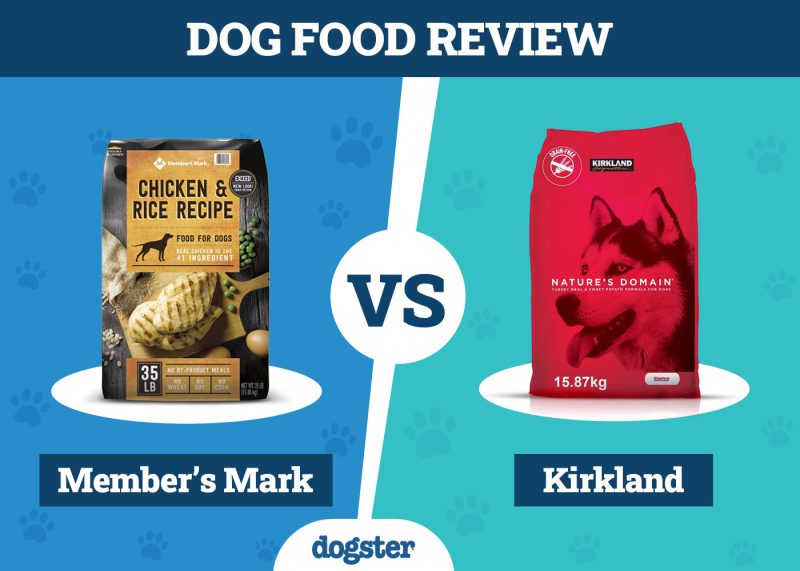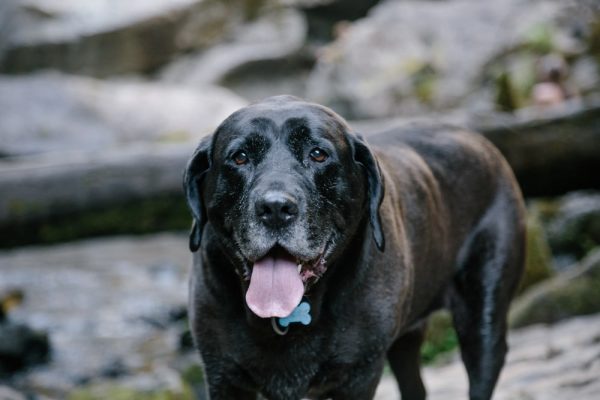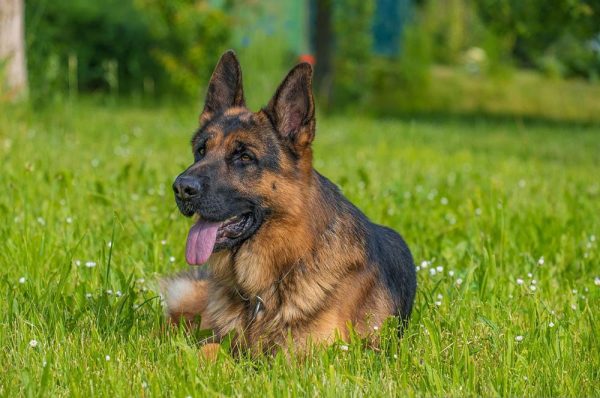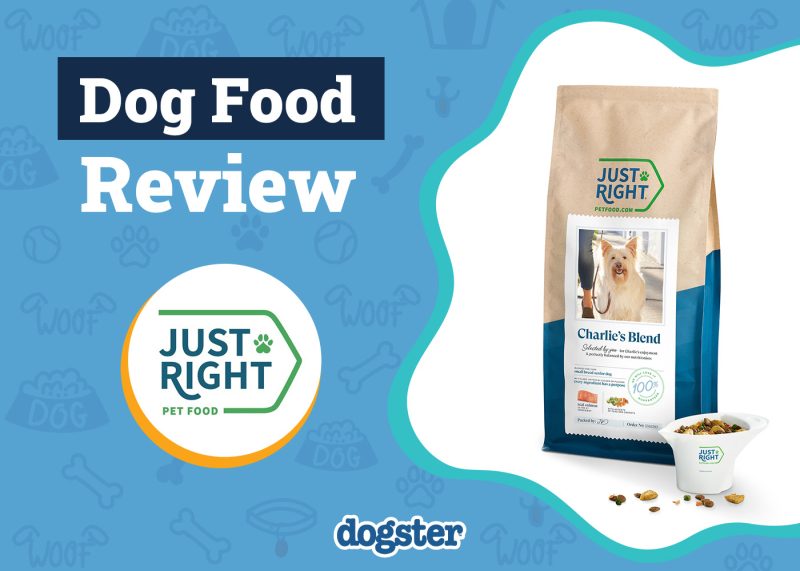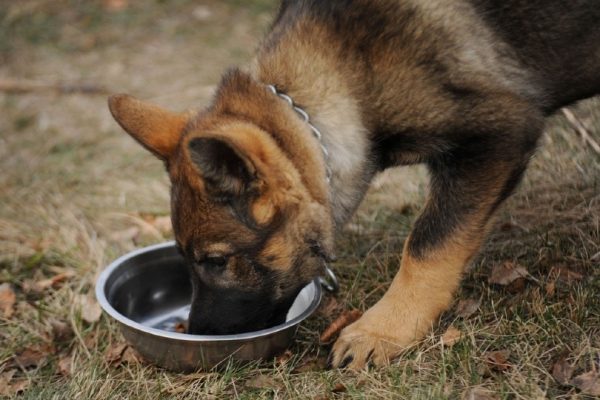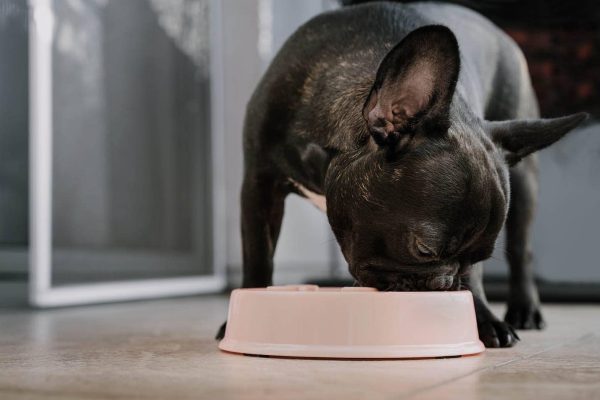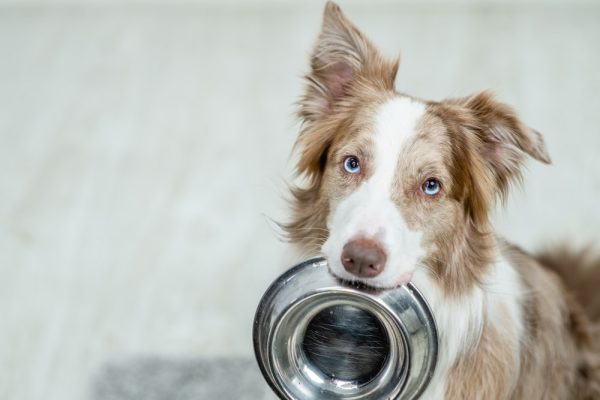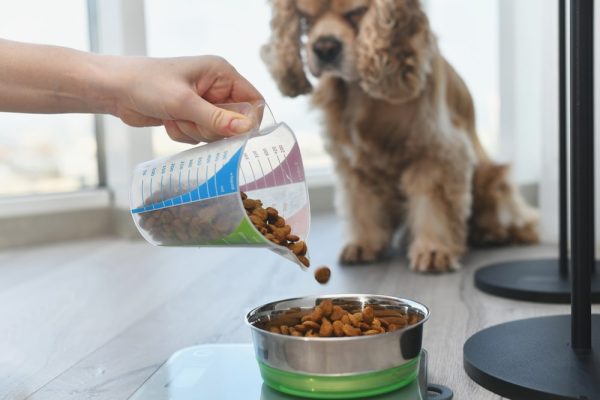In this article
View 2 More +Deviled eggs, sometimes also called stuffed or curried eggs, are a popular appetizer for holiday dinners and potlucks. These creamy and tangy treats are made with basic ingredients most people already have in their pantry, so they’re not only delicious but simple to make, too. With some basic ingredient swapping, you can even make them healthier for calorie-conscious folks.
However, if you’re wondering, “Can dogs eat deviled eggs?” you’re right to be wary about feeding them to your pup. Dogs shouldn’t eat deviled eggs. Traditional stuffed eggs are made with ingredients that aren’t healthy for dogs, and some of the contents can actually be toxic for your canine pal. Read on to learn more.

Why Can’t Dogs Eat Deviled Eggs?
Before we tell you why dogs can’t have deviled eggs, it’s important to look at the most basic recipe. Most recipes require ingredients such as mayonnaise, sugar, white vinegar, mustard, onion, celery, salt, and paprika. While ingredients can vary from recipe to recipe, these are among the most common to use in the preparation of classic deviled eggs.
Dogs can safely consume hard-boiled eggs, which are a great source of protein, fatty acids, vitamins, and minerals. Celery can also serve as a healthful occasional snack for dogs, as it’s hydrating and full of vitamins and antioxidants.
Mayonnaise
Mayonnaise acts as a binding agent and makes the deviled egg yolk filling creamy. It doesn’t technically contain toxic ingredients for dogs, as it’s made by emulsifying eggs, oil, and an acidic liquid such as vinegar or lemon juice. However, it is extremely high in fat.

Sugar
Sugar is often added to the yolk as a way to enhance the flavor; however, it is not found in every deviled egg recipe, and some top chefs may scoff at its usage in such recipes. While sugar isn’t toxic for dogs, it’s very unhealthy for them in large amounts, leading to excessive weight gain.
Mustard
Most deviled egg recipes call for store-bought prepared mustard or homemade varieties. However, chefs sometimes use Dijon mustard for more flavor. Dogs should not have any mustard, however, as the seeds used to make this tangy condiment can cause gastrointestinal signs in dogs. Additionally, some store-bought varieties may contain other potentially harmful ingredients.

Onions
Deviled egg recipes don’t always contain onions, but some of the most popular (and tasty) ones do. Onions are toxic to dogs as they contain compounds that cause chemical changes to their red blood cell membranes, leading to anemia.
Salt
Salt adds flavor to deviled eggs. While it is a necessary part of your dog’s daily diet, they’ll get their daily requirement met by eating their dog food, and eating excessive amounts of salt can cause dehydration and other problems.
Paprika
Paprika is a staple in virtually every deviled egg recipe, adding a subtle earthiness and being sweet and peppery. While it isn’t technically toxic for dogs, it’s still not recommended that you give your dog foods containing this spice.
If your dog has consumed devilled eggs and you are concerned about his or her wellbeing, we recommend contacting a vet for further advice.
If you need to speak with a vet but can't get to one, head over to PangoVet. It's our online service where you can talk to a vet online and get the advice you need for your pet — all at an affordable price!

Dangers of Feeding Deviled Eggs to Dogs
1. High Fat Content
Deviled eggs are high in fat thanks to their mayonnaise content. Excess fat in the diet can cause weight gain, ultimately putting excessive strain on your pup’s joints and predisposing them to certain diseases. Additionally, regular consumption of fatty foods, or sometimes even a one-off fatty meal, can cause pancreatitis, a painful pancreatic inflammation that can cause vomiting, abdominal pain, lethargy, fever, and diarrhea.
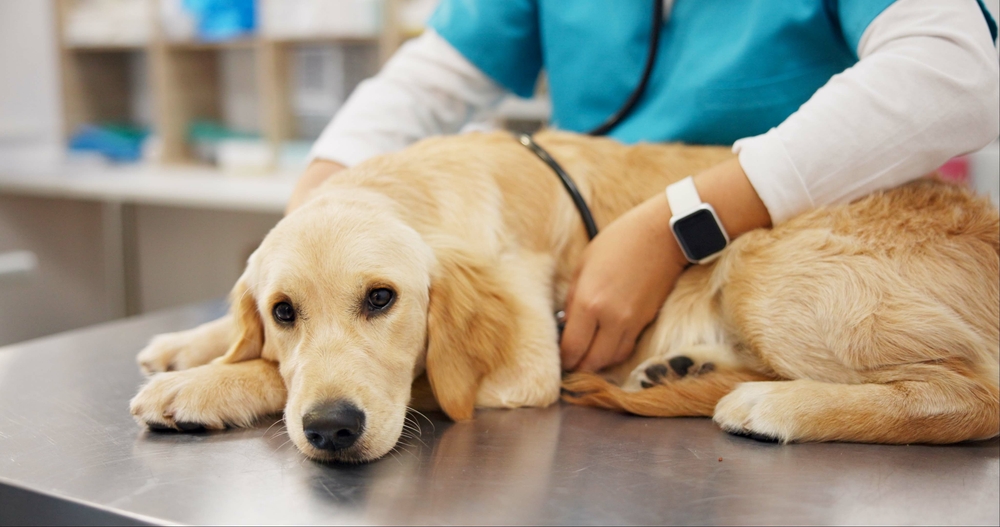
2. Sugar Inappropriate for the Canine Diet
While the amount of sugar in a deviled egg recipe is negligible, it’s still important that dog owners know why their pets shouldn’t have sugar. Eating too much over a long period can cause health issues like obesity due to the excessive calories.
3. Mustard Seeds
While a tiny lick of mustard off your plate at a backyard barbecue is unlikely to cause a serious issue, large amounts of mustard can be problematic for dogs. All varieties should be avoided, including the most popular ones used in deviled egg recipes. Mustard seeds are irritants that can cause gastroenteritis in dogs, leading to signs such as appetite loss, drooling, vomiting, diarrhea, and abdominal pain.
4. Onion Toxicity
Onions and their garlic and leek relatives are from a group of herbs belonging to the Allium genus and are all toxic to dogs and cats in their dried, liquid, powdered, raw, and cooked forms. When enough is consumed they can cause extremely serious medical issues and even death, as ingestion of the Allium spp. can damage the red blood cells necessary to carry your pup’s oxygen throughout their body. When these cells are destroyed, anemia can occur and in severe cases, the essential organs will not receive the oxygen they need to work as they need to.

5. Excess of Salt
Excessive salt can be dangerous for dogs, but toxicity is unlikely to occur with deviled eggs and is seen more commonly when dogs eat homemade play dough. Ingesting too much salt, especially if water access is limited, may cause dehydration. There is also some evidence that dogs with heart conditions could benefit from a low-sodium diet.
6. Upset Stomach
Several of the ingredients in deviled eggs can cause an upset stomach if your dog ingests them. Paprika, for example, may not be toxic, but it can give your pup a bad tummy ache, especially if the type you used was made with chili peppers.

Can I Make Dog-Friendly Deviled Eggs?

Dog-friendly deviled eggs are possible with some significant changes to the traditional recipe. How suitable the pup-friendly version will be for human consumption is up for debate. You may wish to add some salt and paprika to the eggs you’ll be eating for additional flavor, but don’t add those ingredients to your dog’s deviled eggs. Our recipe calls for yogurt, but please don’t feed this if your dog is lactose intolerant. This recipe is intended as a treat only, and your dog should be fed a small amount according to their size. Tiny dogs should have only a quarter of an egg, a medium-sized dog can have a whole egg, while a giant dog can have two or three eggs.
- Eggs
- Unsweetened, plain yogurt
- Hard boil the eggs using your preferred method.
- Once cool, peel them and slice them in half longwise.
- Remove the yolks and scoop them into a medium-sized bowl.
- Add the plain yogurt. You’ll want to use just one per egg, so adjust how much you add to your mixture according to how many eggs you cook. Smash with a fork until the mixture reaches a smooth and creamy consistency.
- Scoop the mixture into a Ziploc bag. Cut one of the corner tips off and squeeze the mix back into your halved egg whites.
Note: If your dog is a counter-surfer who loves stealing food off your kitchen counter, you may want to rethink making this recipe. Your pup won’t know the difference between the dog-safe deviled eggs and the ones containing the potentially harmful ingredients.

Final Thoughts
While some of the ingredients in deviled eggs are dog-safe, the bulk of the recipe is not. Deviled eggs are, therefore, best saved for the humans in your family. However, if you must make your pup a dog-friendly version, the recipe we shared above should do the trick.
Featured Image Credit: Chatham172, Shutterstock



